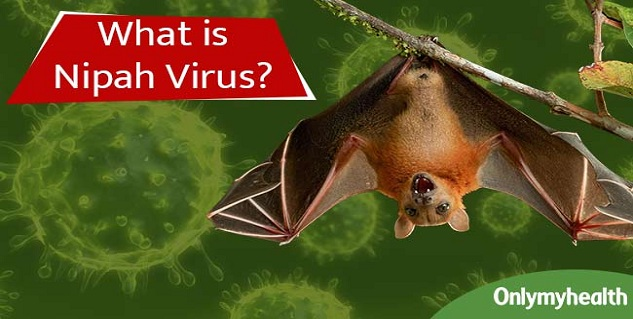- BE AWARE
- BE ALERT
- BE CAUTIOUS
- DO NOT PANIC
WHAT IS NIPAH VIRUS INFECTION?
Nipah Virus (NiV) infection is a viral disease caused by Nipah Virus of the genus Hepinavirus in both animals & humans.
WHY THE SCARE?
Since the year 1998, Nipah virus outbreaks have been reported in Malaysia, Singapore, and Bangladesh. Out of the 582 human cases of Nipah virus, 54% were fatal. Isolated cases have been identified periodically in eastern India since 2001 but for the first time in India, an outbreak has been reported in the Kozhikode district of Kerala. 10 deaths have been reported till now.
TRANSMISSION
Nipah Virus is a virus transmitted to humans from animals. In the outbreaks in India, consumption of fruits or fruit products (eg. Raw date palm juice) contaminated with secretions from infected fruit bats was the most likely source of infection. Limited human to human transmission of NiV through close contact with people’s secretions and excretions have also been reported.
SIGNS & SYMPTOMS
Human infections range from asymptomatic infections, acute respiratory tract infection to fatal encephalitis.
The interval from infection to the onset of symptoms is usually between 4-14 days. Infected people develop flu-like symptoms( fever, headache, muscle pain, sore throat, vomiting). This can be followed by confusion, drowsiness, dizziness, altered consciousness. Severe cases may lead to seizures and encephalitis which may progress to coma within 24-48 hrs.
Atypical presentations include pneumonia and severe respiratory tract infection.
With timely intensive care, most people who survive acute encephalitis make a full recovery but still, nearly 20% patients are left with residual deficits like seizure disorders and personality changes.
DIAGNOSIS
NiV infection can be diagnosed together with clinical history during the acute and recovery phase of the disease. Main tests include RT-PCR and antibody detection via ELISA.
TREATMENT
Currently, no drugs or vaccines specific for NiV infection are available. Intensive supportive care is recommended to treat complications.
PREVENTION
- Avoid traveling to places with outbreaks with NiV infections.
- People traveling from the outbreak reasons should be screened for symptoms for at least 18 days.
- Avoid exposure to sick animals, especially bats and pigs.
- Domestic animals can also be the carriers of NiV. Try to keep them indoors and feed them yourself. If there is a chance of them being infected, keep distance and get them treated.
- Avoid drinking date palm saps.
- Fruits should be thoroughly washed and peeled before consumption. Avoid date palms.
- Close unprotected physical contact with NiV infected people must be avoided.
- Regular hand washing should be carried out after caring for or visiting sick people.
- Get yourself immediately tested if you feel uneasy in and around the infected region.
- Health care workers should follow standard precautions and wear mask, gloves, and gowns while tending to the sick people.
NIPAH VIRUS CASES ARE USUALLY A LOCALISED OCCURRENCE RESTRICTED TO AN AREA. ALTHOUGH IT IS GOOD TO BE VIGILANT, THERE IS ABSOLUTELY NO NEED TO PANIC.
Written By:

Dr. Shreya Dubey,
Consultant, Neonatology, and Paediatrics,







Best air max , you will finde ever !